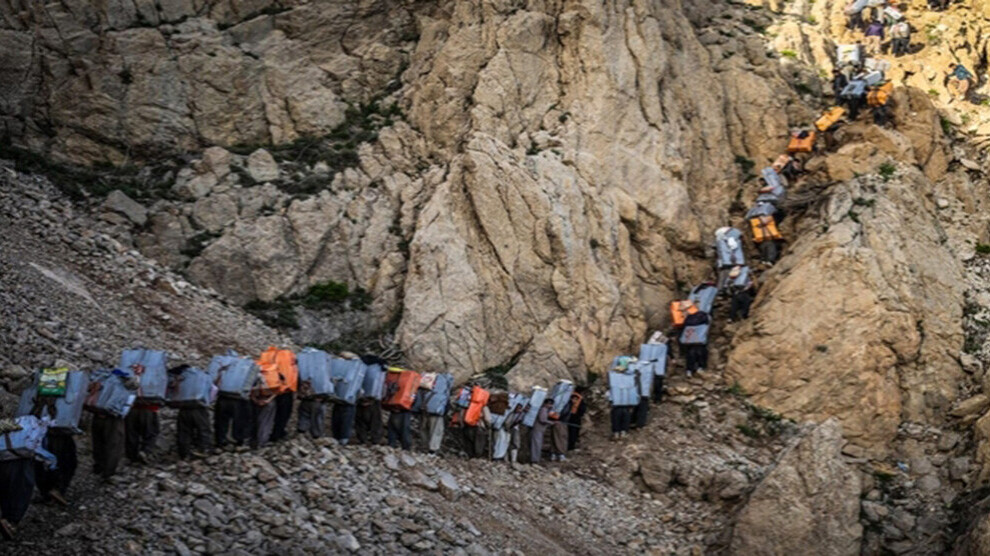Another kolbar killed by Iranian forces in Eastern Kurdistan
Kolbars and kasibkars are targeted systematically by Iranian and Turkish security forces. Each year, dozens of them are killed with no punitive measures being taken.
Kolbars and kasibkars are targeted systematically by Iranian and Turkish security forces. Each year, dozens of them are killed with no punitive measures being taken.

According to Kolbarnews, forces of the Iranian regime opened fire on a group of kolbars in the border area of Hawraman, located within the provinces of Kurdistan and Kermanshah in Eastern Kurdistan (Rojhilat).
The attack on 1 October, which took place near the village of Darki in the Tete region, left one kolbar dead and an unknown number of kolbars injured.
Iranian forces attacked another group of kolbars on the same day. One kolbar was injured as a result of the attack in the region of Nudsha in Pawa, Kermanshah.
According to the Kurdistan Human Rights Network (KHRN), at least two kolbars were killed and 10 others were injured in the country’s western border areas in September. In the previous month, August, at least four kolbars were killed and 16 were injured in Iran’s western border areas. Of these, 18 were shot by Iranian border guards and one was killed after he was hit by a military vehicle of the border forces. In addition, one kolbar was injured after being shot by Iraqi border forces at the Choman border of Baneh on 7 August.
Kolbars and kasibkars are targeted systematically by Iranian and Turkish security forces. Each year, dozens of them are killed with no punitive measures being taken. Apart from systematic attacks, kolbars are struggling to make a living under harsh weather conditions, dangerous geographical locations and mines.
Kolber or “kolbar” is derived from the Kurdish words “kol” and “bar”. Kol means “back”, bar means “load”. Kolbars make their living by carrying goods on their backs across dangerous borders. The goods they carry include cigarettes, mobile phones, blankets, household items, tea and rarely alcoholic beverages. They have to pass through dangerous roads between South Kurdistan and East Kurdistan. The goods brought are sold at relatively high prices in commercial centres such as Tehran. However, kolbars who carry out the transportation of goods at the expense of their lives receive a very small amount of wages.
Kasibkar refers to those people who receive the goods kolbars carry to South Kurdistan and find buyers in towns.